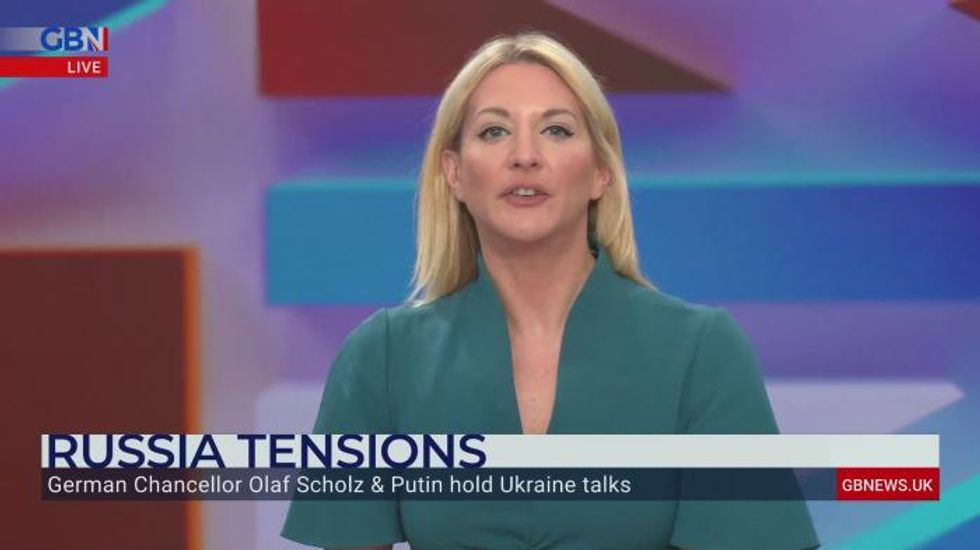Don't Miss
Most Read
Trending on GB News
Peace for our time. The words of Chamberlain, clutching the Munich Agreement after meeting Hitler in 1938, reassuring Europe that the German Fuhrer would restrain himself having been granted concessions from European leaders. Less than a year later, Europe was at war.
By the time you wake up tomorrow, Russia may have invaded Ukraine. But there is one last roll of the diplomatic dice, and it will poignantly be cast by Germany.
Germany, accused by the Ukrainian ambassador of breaking sanctions to supply materials that could have been used to build the very weapons that could strike Kyiv.
Germany, who allegedly blocked airspace to UK aircraft delivering defense supplies to Ukraine.
Germany, who reportedly demanded Lithuania not supply Kyiv with arms, and sent but a few thousand helmets instead.
Germany, who cast doubts on sanctions, concerned at the exposure of European banks to the Ruble, blocking proposals to ban Russia from the globe's largest currency transit system.
Germany, whose former Chancellor Gerhard Schroder celebrated his 70th birthday with Putin as guest of honour, and partnered with the Kremlin over the gas supply at the root of Europe's fractured response - the Nordstream managing director, himself a former Stasi spy.
Germany, who has enough Kompromat to fill a Cold War film franchise.
Today, German Chancellor Olaf Scholz is meeting Putin in Moscow, possibly on the eve of war, has greater leverage than any other nation. But at what cost?
Germany may hold cards. But how many spell appeasement?











